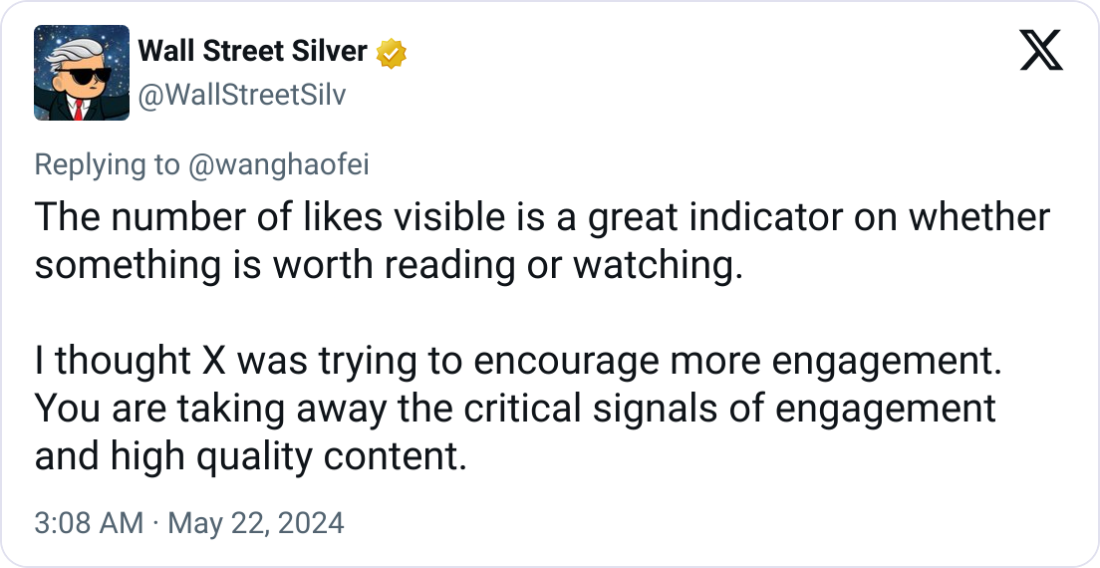Ethereum co-founder Vitalik Buterin expressed support for engineer X Haofei’s announcement

Vitalik Buterin, co-founder of Ethereum, expressed his support for engineer X Haofei’s announcement on decentralized social media platform Farcaster. Haofei revealed that X would make likes private.
On May 20, Buterin took the idea further by proposing that Farcaster implement zero-knowledge (ZK) preferences to combat preference falsification – the distortion of true preferences due to social pressure or fear.
ZK technology is a privacy-preserving encryption technology that allows one party to prove to the other that a statement is true without revealing confidential information. When applied to likes, it proves that someone liked a post anonymously.
Buterin suggested borrowing ZK technology from Zupoll, a tool used in the ephemeral city concept, which Buterin created and named Zuzalu. Geared towards decentralization and cryptography, Zupoll is used for anonymous voting and survey decision-making.
Buterin’s proposal to use ZK technology is consistent with the principles underlying the Farcaster platform: user privacy, censorship resistance, independence and differentiation from centralized social media platforms.
In response to rumors that X might hide users’ likes by default, Haofei confirmed that the platform would make likes private and explained the reason behind it.
“The general likes to motivate bad behavior. “For example, many people are discouraged from liking content that might be ‘sensational’, for fear of retaliation from trolls or to protect their public image. »
Haofei went on to say that users will soon be able to like posts “without worrying about who might see them.” He also reminded users that “the more posts you like, the better the algorithm is for you.”
Community reaction to the news was mixed. Some users suggested going further by saying “Why stop at likes? » The follow-up is the same. While high-profile accounts like Wall Street Silver offer a conflicting opinion.

about: The white paper that generated the ZK-proofs encryption wins the IEEE “Test of Time” award.
Outside of the ZK crypto realm, Buterin has recently proposed solutions to alleviate the Metals Extracted Value (MEV) problem. Through MEV strategies, validators can make profits by organizing transactions within a block to capture otherwise inaccessible arbitrage opportunities.
However, this practice leads to network congestion, increased merchant slippage requirements, and increased gas fees. To combat this, Buterin proposed using quarantine techniques to reduce MEV, using inclusion lists and reducing node operation requirements.
Magazine: If Bitcoin doubles, stacks will quadruple in 2025: Daan Crypto Trades, X Hall of Flame